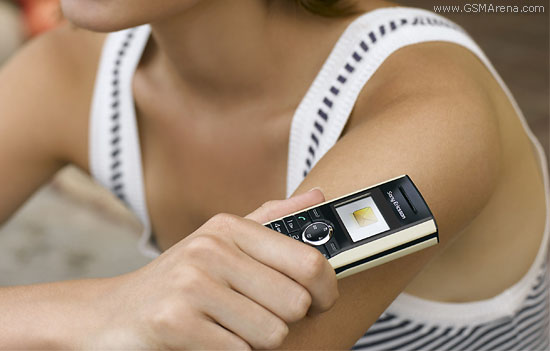Sony Ericsson J110 Specs Pricing Pros & Cons Unveiled

Overview
The Sony Ericsson J110 is a basic feature phone that primarily targets users who require essential mobile functionalities without the complexities of modern smartphones. Introduced in February 2007, the device quickly gained attention for its compact design and focus on fundamental mobile communication tasks. Although it has been discontinued, it remains a notable example of simple and effective mobile communication technology from the early 2000s.
Design and Build
Designed to fit comfortably in the pocket, the Sony Ericsson J110 has dimensions of 99 x 44 x 17 mm and weighs just 79 grams. The phone employs a traditional candy bar design with a numeric keypad, making dialing and text input straightforward. The device uses a Mini-SIM card and is encased in a durable plastic shell that comes in three color options: Smooth Grey, Soft Cream, and Precious Purple.
Display
The J110 features a 1.36-inch STN display capable of rendering 65K colors. With a resolution of 96 x 64 pixels and a 3:2 aspect ratio, the screen offers an adequate viewing experience for text-based functions such as SMS and call logs. Although minimal by today’s standards, the screen was sufficient for its time, fulfilling the basic requirements for users who needed a device primarily for voice communication.
Network and Connectivity
For connectivity, the Sony Ericsson J110 supports GSM technology, operating on GSM 900 and 1800 bands, designated by its model number J110i. The phone does not support GPRS or EDGE networks, reflecting its fundamental design purpose of simple voice and text communication. In terms of additional connectivity, it lacks Bluetooth, WLAN, and a Universal Serial Bus (USB) port.
Memory and Storage
The phone's internal memory is designed to support basic functionalities, allowing for the storage of up to 200 phonebook entries. Additionally, it keeps a record of 10 dialed, 20 received, and 20 missed calls. There is no card slot option for expandable storage, and its capabilities do not require it, given the phone's limited multimedia functions.
Battery Life
The J110 is powered by a removable Li-Ion battery which offers substantial usage times for its feature set. The battery provides up to 400 hours of standby time and up to 9 hours of talk time, making it a reliable choice for individuals who require sustained phone availability throughout the day. This duration reflects the device's efficient power management, especially since it lacks power-draining features found in more advanced phones.
Sound and Alerts
While lacking a 3.5mm jack for headphones, the J110 supports a loudspeaker which can be used for call ringtones and alerts. Users can choose from vibration alerts and downloadable polyphonic ringtones, adding some degree of personalization to the device.
Software and Features
Operating as a feature phone, the Sony Ericsson J110 comes with pre-installed basic applications and games that cater to users’ minimalistic needs. The phone supports SMS and Enhanced Message Service (EMS) for text communication, but lacks an internet browser and Java for running additional applications. Although these limitations were commonplace for feature phones of its era, they also allowed the J110 to be cost-efficient and energy-saving.
Price and Market Placement
When it debuted, the Sony Ericsson J110 was priced at around 50 EUR, positioning it as an affordable option in the market. This pricing strategy made it accessible to a wide array of consumers who needed a basic and straightforward mobile communication device without the additional cost burden of more advanced features.
Conclusion
In summary, the Sony Ericsson J110 remains an interesting device from the post-2007 era of mobile communication. Its emphasis on durability, essential functionality, and affordability echoes back to a time when mobile phones were primarily communication tools rather than integrated smart devices. Even though it is outdated by modern standards and discontinued, the J110 remains a piece of nostalgia and testament to the effective minimalism in mobile technology.
Sony Ericsson J110 Key Features
- Compact size dimensions of 99 x 44 x 17 mm
- Lightweight at just 79 grams
- Durable and removable Li-Ion battery
- Stand-by battery life of up to 400 hours
- Talk time of up to 9 hours
- STN display with 65K colors
- Available in multiple colors: Smooth Grey, Soft Cream, Precious Purple
- Supports 200 contacts in the phonebook
- Loudspeaker for hands-free calls
- Downloadable polyphonic ringtones
- Support for SMS and EMS messaging
- Pre-installed games for entertainment
- Affordable price approximately 50 EUR
Disadvantages of Sony Ericsson J110
- No support for GPRS and EDGE, limiting internet connectivity.
- Small display size of 1.36 inches with low resolution of 96 x 64 pixels.
- Lack of expandable memory card slot.
- No camera functionality available.
- No support for Bluetooth, WLAN, or USB connectivity.
- Does not have positioning features or radio.
- No 3.5mm headphone jack for audio output.
- No web browser support.
- Limited memory for phonebook (200 entries) and call records (10 dialed, 20 received/missed).
- Discontinued status, thus limited support and availability.


View Also
More Phones
All Rights Reserved +13924 Phones © Mobilawy 2025

























